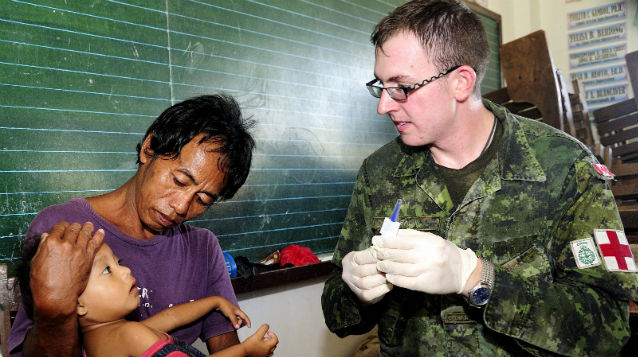SUMMARY
This is AI generated summarization, which may have errors. For context, always refer to the full article.

MANILA, Philippines – Not only do they speak the fastest growing immigrant language in Canada. They have also prompted one of the biggest surges of aid to the Philippines after Super Typhoon Yolanda (Haiyan).
Canadian individuals donated up to P3.46 billion ($85 million) for Yolanda survivors partly because of “the presence of the Filipino diaspora in Canada,” Canadian Ambassador to the Philippines Neil Reeder said in a press conference this week.
Up to 800,000 Canadians come from Filipino families, Reeder explained. They comprise 2.26% of Canada’s population.
Their influence has made Tagalog, in fact, the fastest growing immigrant language among the 200 languages spoken in Canada.
Filipinos have become “very familiar” to Canadians that it made them “want to help,” Reeder said on Tuesday, April 8.
Amount doubled
The ambassador added it also helped that Filipinos speak English.
“People see the impact on their television screens. In this instance, people were also speaking in English to the cameras, and people abroad, in our country, could understand the pain and the anguish that was being expressed. I think that touched Canadians immensely,” Reeder said.
He said Filipino Canadians also volunteered to help.
These factors – coupled with Canada’s “very strong humanitarian impulse,” as seen in the Haiti earthquake, for instance – led to the P3.46 billion individual donations.
Reeder said the Canadian government has agreed to match these donations “dollar by dollar.”
This means the Philippines will receive at least P6.92 billion ($170.23 million) from the Canadian government and Canadian individuals.
This is around 2% of the initial estimate of P360.9 billion ($8.17 billion) that the Philippines needs to rehabilitate Yolanda-hit communities.
‘Emotional ties’
“It does not only underscore government-to-government but also people-to-people ties,” said Gina Jamoralin, acting assistant secretary for the Office of American Affairs of the Philippines’ Department of Foreign Affairs.
Klaus Beck, country representative of the United Nations Population Fund in the Philippines, described the Canadian’s donations as “very special.”
“Funding is always about the government, but the emotional part that is linking this money with the activities on the ground definitely is unique,” Beck told Rappler in an interview.
Beck, who is married to a Filipino, also said the focus of Filipinos on “extended family relations” helped in increasing donations. He noted that many Filipinos from abroad donated to Yolanda survivors.
“You have a lot of cousins and friends. You feel emotionally connected to these people,” he said. – Rappler.com
Add a comment
How does this make you feel?
There are no comments yet. Add your comment to start the conversation.